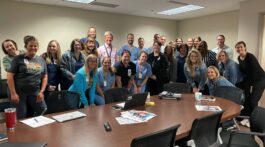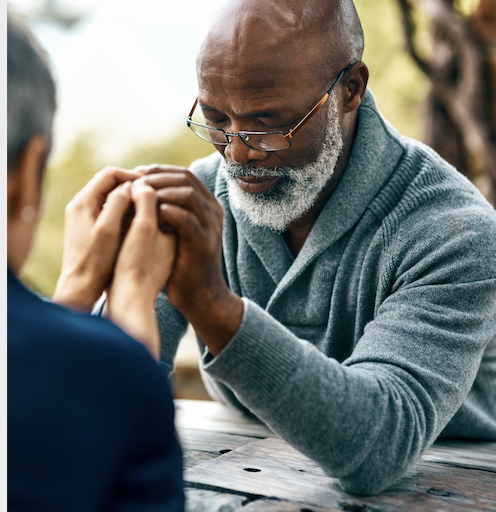Laughing with a friend. Singing with a choir. Joining a church activity. There are many ways we can feel connected to others. Those relationships not only affect our happiness, but our health as well.
While social connections can improve our health, loneliness is a risk factor for conditions like cardiovascular disease and depression. In 2018, health insurer Cigna surveyed 200,000 U.S. adults and found that almost half of respondents reported sometimes or always feeling alone. Those feelings can affect our health by preventing us from fully experiencing the joy of life, says Mark Stoddart, administrative director of Spiritual Wellness at AdventHealth Shawnee Mission.
At AdventHealth Shawnee Mission, we focus on whole-person health through the faith-based CREATION Health principles. The “I” refers to Interpersonal Relationships, including the connections we have with family, friends and others. In other words, our connections with other people can affect our physical, mental and spiritual health.
Studies show that feeling part of the community can lead to lower stress, faster healing times and even longer life expectancy. A Johns-Hopkins University study of more than 100,000 people found that attending church services on a weekly basis was associated with a reduced risk of death the following year by almost 50 percent. In contrast, a scientific report from Brigham Young University in 2017 found that loneliness significantly increases the risk of premature death, in some cases even more than obesity.
By connecting with others, including our families, friends, or neighbors, we can deal with the stress of life’s ups and downs through social support and healthy coping skills. The following tips draw on CREATION Health principles for building healthy relationships in our families and communities.
Schedule time for others
One of the best gifts you can give someone is the gift of your time. Find time to visit with your grandparents, parents, kids, friends or anyone who might be feeling a little lonely. It will not only make them feel valued and cared for, but it’ll make you both feel happier (and healthier) as well.
Accept others’ differences
When we feel like we don’t belong in a group, we may feel more isolated. To help build relationships with others, look for ways you’re similar instead of focusing on your differences. Be open to meeting and connecting with people from all walks of life.
Look for positive interactions
Find ways you can brighten someone’s day, whether it’s sending a thank you card or calling someone on a birthday. Look for ways to provide support, offering encouragement on stressful days and celebrating their successes.
Learn to forgive
When someone hurts us, it can be hard to forgive them, but by letting go of a grudge, you can improve your health. A 2003 study in the Journal of Behavioral Medicine found that the ability to forgive is associated with decreased blood pressure levels.
Find ways to volunteer
By helping others, you not only make a positive difference in your community but you build the emotional connections that are so important to your health. Look for volunteer opportunities that relate to your interests, whether that’s through church, a hospital or an animal shelter.
For more information, visit AdventHealthKC.com or CREATIONHealth.com.










